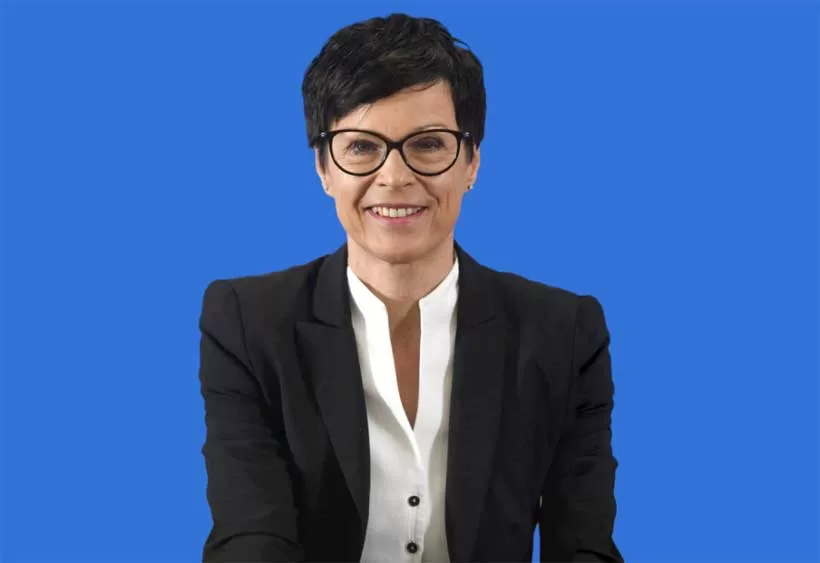We now know President Ursula von der Leyen’s picks for the next EU commissioners, the key figures likely to shape the bloc’s executive direction over the next five years. However, with European Parliament hearings still ahead, the future looks less promising for EU candidate countries. The incoming Enlargement Commissioner, Marta Kos, and the new High Representative for Foreign Affairs, Kaja Kallas, may pose challenges for these hopeful future members.
The EU currently has nine candidate countries, many of which have spent over a decade in the waiting room, along with four recent potential members, each dealing with a wide range of challenges. From fragile economies to struggles with the rule of law, democracy, and even growing Euroscepticism, the obstacles are significant. In this difficult situation, the new executive leaders responsible for shaping the Union’s neighbourhood policy face a tough task. And they, too, won’t be easily convinced of a country’s readiness to join.
For Slovenia’s Marta Kos, the commissioner nominee expected to lead the enlargement portfolio, the fact that Ukraine is at war and Moldova faces its own struggles due to Russian influence isn’t enough reason to rush talk of Ukraine’s swift EU membership, as some bureaucrats are quick to suggest. Kos has also taken a more measured stance on Russia, stating in March 2022: “We must be critical of Russia, but we must not close our doors to it.”
Following her nomination by von der Leyen, Kos took to social media with a thank you note, stating that “Ukraine, Georgia, Moldova, the countries of the Western Balkans, as well as Türkiye have a European perspective”, without drawing any distinctions or acknowledging the unique contexts of each (ironically, in Türkiye, full membership negotiations have stalled). Her statement also raises interesting implications for Western Balkan candidates, who may feel sidelined after the rapid progress made with the Association Trio, in contrast to their own slower path.
On the other hand, Estonia’s former prime minister, Kaja Kallas, is one Europe’s most devoted critics of Russia and other authoritarian regimes. As a leader from a post-Soviet Baltic state, she brings a more experience-driven perspective to countries like Ukraine, Moldova, and Georgia. However, this doesn’t mean her foreign policy will make things any easier for them.
Coming from a small European nation which sought its path to democracy after gaining independence, it’s natural for her to prioritise a rules-based order, where international agreements are honoured, and democratic norms are upheld. With numerous issues in candidate countries, including democratic backsliding, Kallas’s approach to EU foreign policy is unlikely to be an easy ride for these nations.
However, when it comes to enlargement, the issue doesn’t lie solely with the candidate countries or the European bureaucrats crafting frameworks. While the EU makes most decisions by qualified majority voting, foreign policy and enlargement require unanimity, meaning a single veto can scuttle progress.
Achieving consensus is already complicated among the 27 members. If nine more candidate countries join, reaching unanimity would become even more challenging. This is one of the key reasons EU enlargement has been hindered for over a decade. We can’t place the blame solely on the candidates, as many of the challenges are not confined to those countries but also exist within the member states themselves.
Money is always a hot topic. The EU runs on a budget which represents about 1% of its GNI, which for the 2021-2027 exceeds 1 trillion euros. This budget mostly comes from the national contributions of member states. A significant chunk, around one third, goes to the EU’s Common Agricultural Policy, while another third aims to improve living standards in the EU’s less wealthy regions; simply put, transferring money from richer countries to poorer ones. New potential members all have a GDP per capita below the EU average. Many, like agricultural powerhouse Ukraine, look set to qualify for substantial agricultural funds.
Perhaps it’s time to reconsider the practice of keeping candidate countries in an endless waiting room and explore new ideas and forms of collaboration with those eager to join the EU. While leaders in candidate countries believe EU membership will significantly boost their socio-economic conditions, many in member states fear they will simply be asked to fund poorer nations. This creates a disconnect and fosters a crisis, both politically and ideologically.
The new leaders in von der Leyen’s second commision, like Kos and Kallas, along with other key commissioners, have the opportunity to establish new frameworks which assign more responsibilities to candidate countries. This approach would ensure the years countries spent in the waiting room are productive, especially as their EU aspirations become more attainable. Member state leaders, who hold the power to vote and make final decisions on the progress of candidate countries, view these nations through the eyes of these commissioners, making their roles crucial in shaping the future of EU enlargement.
